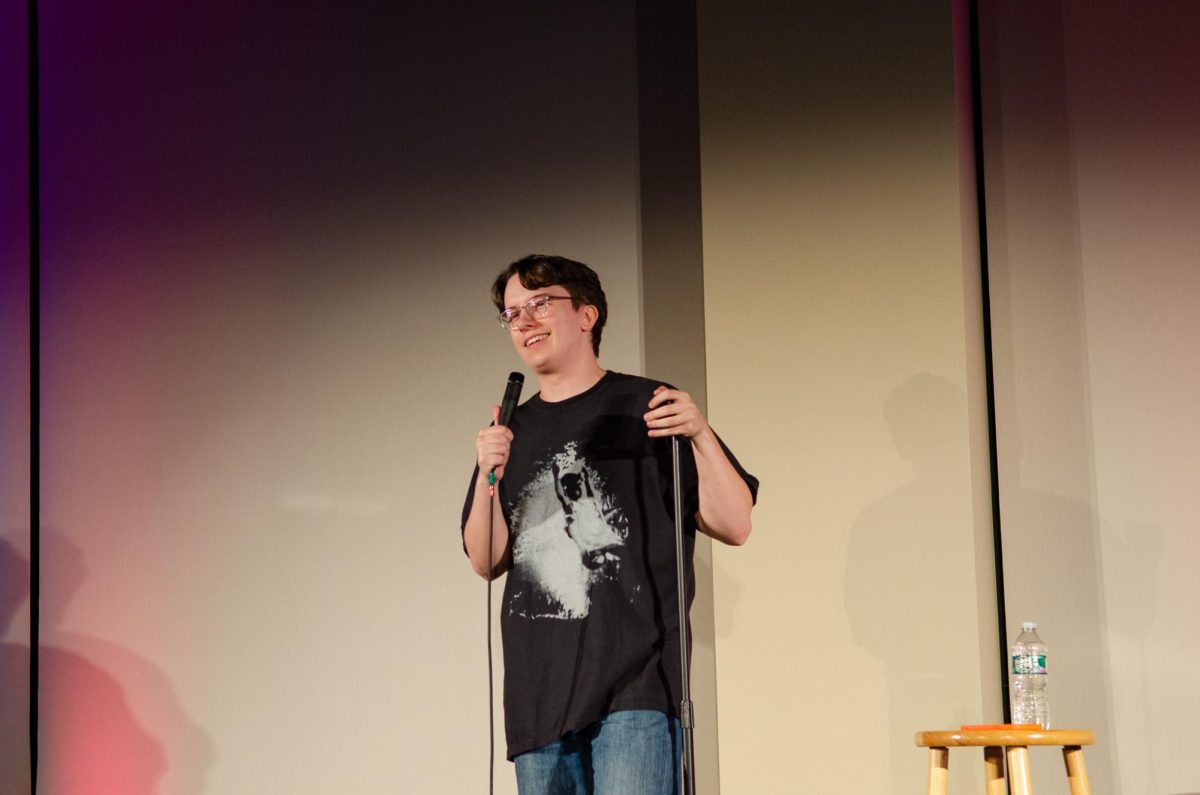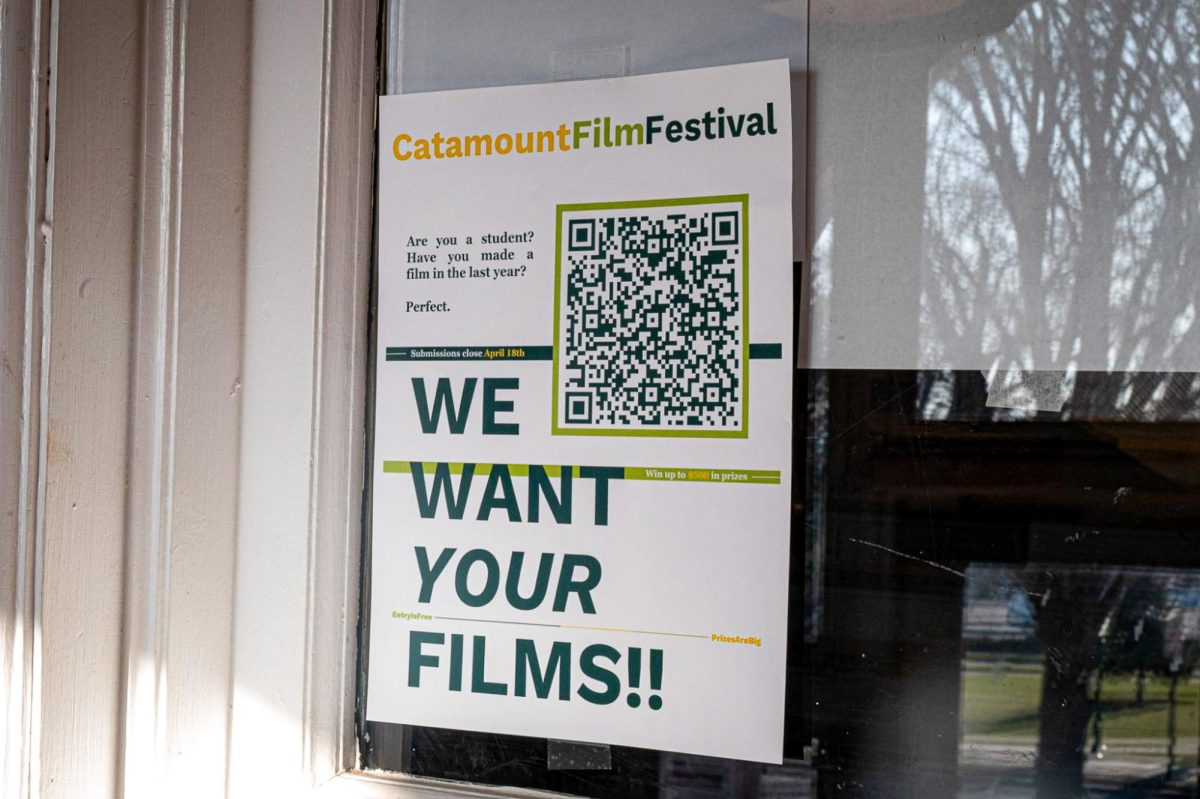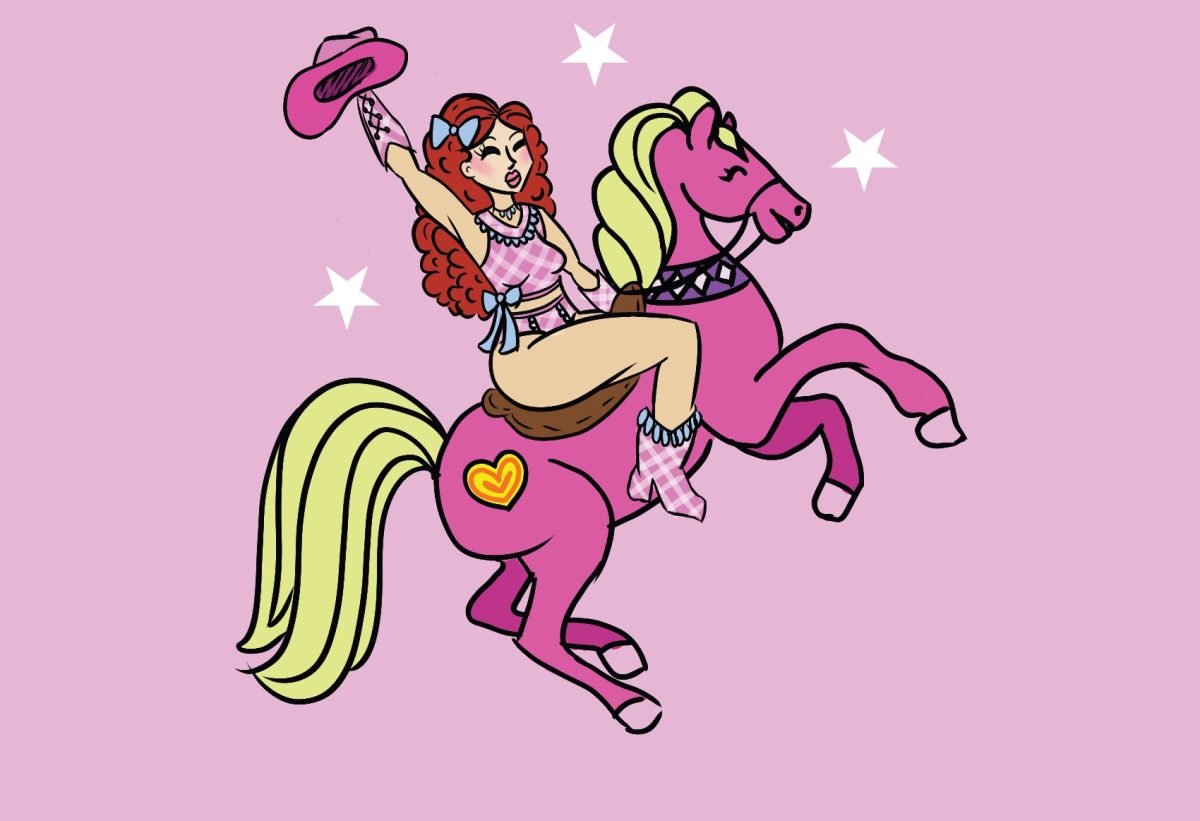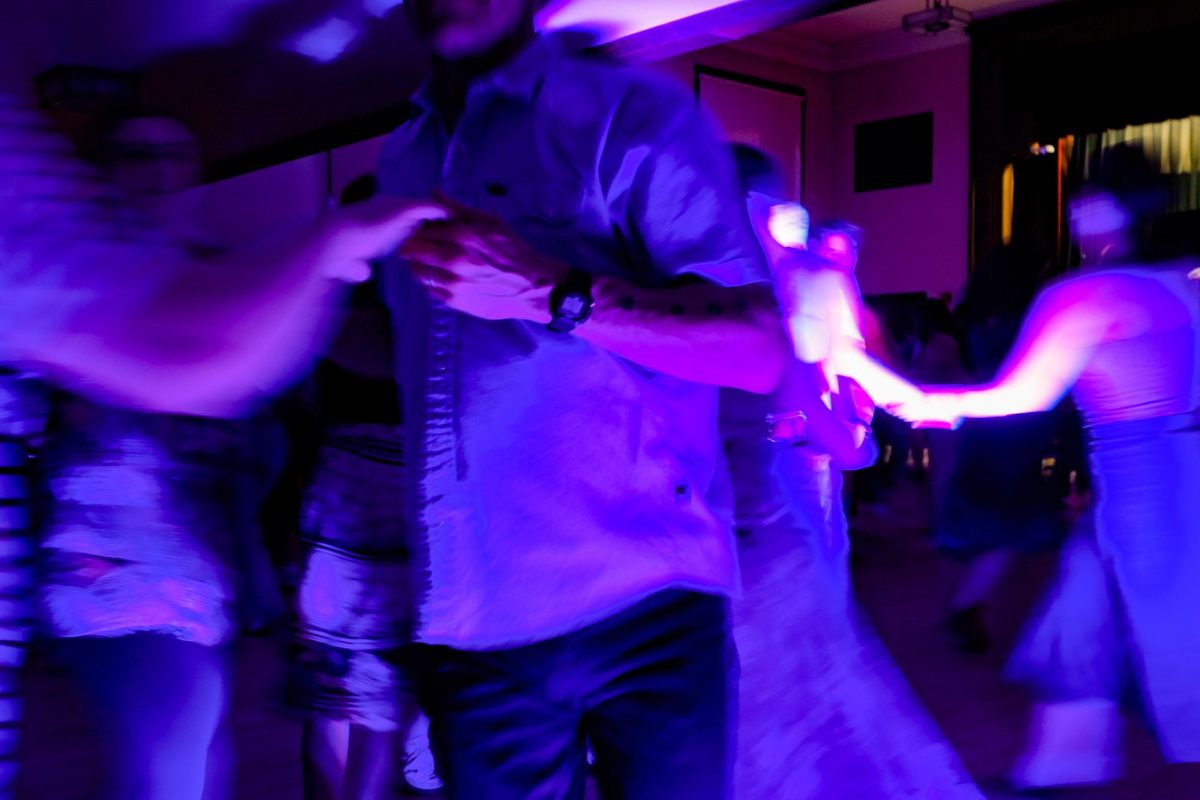Six hundred students and two acclaimed entertainers shared laughs over stories of absurdity, hardship and horror.
UVM Program Board hosted their annual Labor Day Comedy Show on Sept. 4 in the Grand Maple Ballroom, headlined by Mekki Leeper with opener Auguste White. Students received free admission, and there were 600 seats available on a first-come, first-served basis.
Leeper is an Emmy-nominated writer and actor on the Amazon comedy docuseries “Jury Duty,” and has appeared in the HBO Max comedy-drama series “The Sex Lives of College Girls.”
White performs stand-up and writes for “Saturday Night Live.”
Some students, like first-years Maren Dudley and Desirae Singh, came to the show to see how Leeper’s demeanor translated from situational to stand-up comedy.
“We wanted to see what his personality would be like in real life,” Dudley said.
White opened the show at 8 p.m. with quips about college and UVM.
“Rally Cat the Catamount,” White said. “That, to me, sounds like a lesbian sex act.”
White then reflected on her theories about dating, her private school education, trying to be a good feminist and the effectiveness of her anxiety and depression medication.
She joked about a time when she stopped taking her medication and discovered that dogs sometimes need glasses.
“And then I called my friend and said, ‘I think I’m having a heart attack,’” she said.
At one point, White paused to acknowledge a screen on stage left displaying real-time captions of her routine.
“There’s some even crazier shit coming up that I’m going to see written in text like it’s the Bible,” White said.
After her thirty-minute set, White introduced Leeper, who took the stage with jokes about UVM and Vermont.
“You guys are a ‘public Ivy’—you don’t say that out loud, do you?” he said.
Leeper discussed childhood alienation, often intertwining stories of trauma with those of nostalgia. He joked about strict parents, growing up in America with a Moroccan name and 2000s fashion.
Portraying himself as having been an uncool child, Leeper spoke of an incident in which he accidentally got a Tarzan backpack instead of a Spiderman one.
“All my friends have like a sick Transformer shooting a missile on their backpack,” Leeper said. “I have a naked adult man who’s just kind of in the forest.”
First-year Jessica Zaffuts cheered when Leeper mentioned Tarzan, she said.
“That’s my favorite movie,” she said.
The audience erupted in applause when Leeper made a joke about the rainbow parachute often used in elementary school gym classes.
“So that’s praise for the rainbow parachute, and when I told you guys my trauma you stared at me like I was a murderer,” Leeper said.
Leeper engaged the audience with narratives from his experience living in a triple dorm and his candidness about mental health.
“That’s how easy it is to be a man,” he said. “You just say, ‘I started going to therapy’ and people clap.”
He spoke about his bipolar depression diagnosis and having to confide in a therapist who repeatedly mispronounced his name.
At the end of Leeper’s set, White joined him onstage for a Q&A with the audience. College and therapy remained outstanding themes as students connected with the comedians by asking about more of their experiences and sharing their own stories.
White, who majored in psychology in college, relayed some advice to undecided students.
“If you’re choosing a major, I would say that it doesn’t have to be the thing that you’re going to do with your life,” she said. “It can just be something that really interests you and helps you see things from a different perspective.”
First-year Merritt Schneider said she was excited for the show because she was a fan of the comedians’ televised work, and her favorite part ended up being the show’s interactive nature.
“I’d never been to a comedy show before,” she said. “All the cheering was great. I love the audience interactions.”
Sophomore Anna Cinnamon was thoroughly entertained by Leeper’s honesty.
“I chuckled a little bit,” Cinnamon said. “It was really authentic. I did enjoy the childhood nostalgia bit and relating to white trash.”
In being honest about mental health struggles while also poking fun at other people’s silly and strange behavior, Leeper and White demonstrated the delight unearthed by laughing at oneself.















